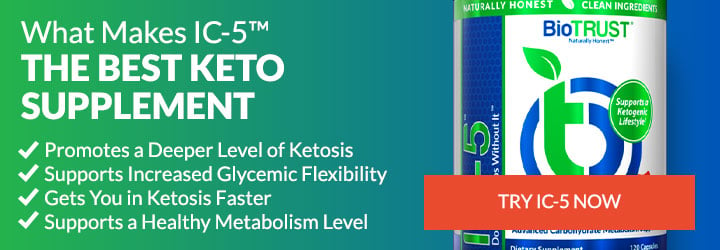How to Live to Be 100…(the keys to healthy aging)

“It’s a proven fact: Living is deteriorating our health…the longer you live, the more illnesses attack you. Follow healthy diets, and you will earn five more years in bed or in a house for the old.” – Zac
That was a comment someone recently left right here on our blog. And as harsh, depressing, and pessimistic as it sounds, I can’t completely disagree with Zac.
But, being an optimist at heart, I view skepticism like this as a challenge, and today, I don’t want to just talk about how you can live longer…I want to show you how you can live a longer, healthier, stronger, and happier life. In other words, it’s not just about living longer. It’s about your quality of living longer. It’s about healthy aging.
And there’s great news. On one hand, there are communities around the world where folks are living wonderful, fulfilling, active lives into their 100s. On the other hand, scientific research dedicated to healthy aging and disease prevention is evolving at an incredible pace.
Let’s explore the factors that can help you live all your years the happiest and healthiest you can!
7 Keys to Healthy Aging

Genetics
While your genetic blueprint has an influence on how long you’ll live, you may be surprised to learn that it plays much less of a role than you might think. In fact, family studies show that only 25% of our lifespan is determined by our genes. That said, just because your genetic makeup may not be the most favorable does not mean you’re doomed.
An incredibly exciting and growing area of scientific research is epigenetics, which, in simple terms, refers to how our environment can affect the expression of our genes. That is, while our genes may be static, there are many environmental factors that can turn them “on” or “off.”
What are some examples of environmental factors that can drive the epigenetic process?
- Diet
- Exercise
- Sleep
- Sun exposure
- Where you live
- Heavy metals
- Pesticides, pollution, and toxins
- Tobacco smoke
- Hormones
- Radioactivity
- Viruses
- Bacteria
- And more
I know that’s a long list, but all you need to know is that genetics do NOT equal destiny. Your environment and lifestyle can play a tremendous role in your capacity to live a long, robust life.
Speaking of lifestyle factors, that’s where the magic happens.

Blue Zones
Let’s start by giving credit where credit is due. National Geographic explorer and author Dan Buettner has identified five different regions, which he has termed the “blue zones,” in Europe, Latin America, Asia, and the United State, that have the highest concentration of “centenarians” (people who live to be 100 years of age or older).
Beuttner and his team studied the world’s longest-living people, and they found that the secrets of their longevity lie within their lifestyle and environment. See, I told you. Specifically, Beuttner and his colleagues identified the following common denominators in these communities.
It Starts with Your “Why”
I have a simple question for you: What’s your why? That may not be easy to answer for many people, but it’s a crucial question. Having a purpose in life has consistently been shown to be an indicator of healthy aging, and believe it or not, finding purpose for your life may not just add quality—it can literally add years.
Patrick Hill, Assistant Professor in Psychology at Carleton University, explains that purpose promotes healthy aging no matter how old you are. Hill says, “Having a purpose in life appears to widely buffer against mortality risk across the adult years.” So, what keeps you going? Or, to borrow a phrase from the Japanese, what’s your ikigai (“life worth living”)?

Diet
Arguably, one of the most effective means to combat aging and extend lifespan is caloric restriction, which activates key anti-aging compounds. I know, not eating doesn’t sound like much fun—especially when food is so abundant and tastes so good—but hear me out.
Recent studies on intermittent fasting (IF), which involves periodically restricting caloric intake, suggest that it may have some of the same benefits of healthy aging. There are several different forms of IF, including time-restricted feeding, alternate-day-fasting, and a fast-mimicking diet.
In addition, the ketogenic diet (a high-fat, very-low-carbohydrate diet) mimics fasting from a metabolic standpoint. Not surprisingly, the ketogenic diet also activates some of the very same longevity compounds that caloric restriction does.
A Mediterranean-style diet is common in areas characterized by exceptional longevity (such as Okinawa, Sardinia, and Calabria), and the DASH diet has also been touted for healthy aging. Because these two approaches do not necessarily restrict caloric intake, you’d be well-advised to follow the Okinawan’s mantra hara hachi bu, which means only eating until you’re 80% full.
On a related note, Dr. Ancel Keys was one of the first to champion the Mediterranean diet for heart health back in the 1950s. Dr. Keys was also a proponent of caloric restriction. In fact, he conducted the infamous Minnesota Starvation Experiment, a grueling study designed to examine the psychological and physiological effects of semi-starvation on soldiers during World War II. Oh, by the way, Dr. Keys lived until he was 100 years old. Do you think he would tell us that one of the “keys” to longevity is a healthy diet?

Movement
Notice that I specifically said MOVEMENT—not just exercise. Don’t get me wrong. I’m not just an exercise coach, I’m an exercise enthusiast and advocate. And as we age, it’s especially important that we lift weights because it’s the best way to build and maintain muscle, which is critical for looking, feeling, and performing our best as we get older.
But here’s the deal: According to the American Heart Association (AHA), exercise can’t undo the damage that being sedentary does to our health. That doesn’t mean you shouldn’t exercise. What it does mean, according to the AHA, is that you should “sit less, move more.”
I know that’s not terribly helpful, but that aligns precisely with the philosophy of centenarians around the world, who stay physically active the natural way. They garden and do yard work, they do chores, they walk or ride bikes to go places, and they don’t rely on machines and modern-day conveniences. For these folks, physical activity is not isolated; it has an objective, making the elders feel like active members of the community.
Stress Management
Everyone experiences stress—even centenarians. As we’ve talked about before, some stress is not only good, it’s essential. However, stress that’s negative and long-lasting can be highly detrimental to your health, and it can accelerate the aging process.
Take, for example, the stress hormone cortisol, which has been identified as a key biomarker of aging. Cortisol is associated with age-related disease and disability, increased blood pressure, increased risk for cardiovascular disease, impaired immune function, cognitive decline, and other issues commonly associated with aging.
While we can’t eliminate stress—nor do we necessarily want to—how we deal with it is perhaps most important. Stress management starts with having a sense of purpose, which ties into having a positive attitude toward life.
Physical activity and movement are keys to managing stress and promoting resilience, and activities like yoga, forest bathing, and spending time outdoors can have significantly positive effects on stress levels. Of course, positive social support and feeling connected to your environment can also have a tremendous influence on stress levels and resilience.

Social Support
Speaking of community, a key component of healthy aging is being linked to a social network that makes you feel connected to your environment. Numerous studies indicate that social support is exceptionally important for optimal health. Positive social interaction is essential for maintaining psychological and physical health, and it’s crucial for cognitive vitality as we age.
It makes sense. Humans are naturally social. We are intended to be part of a tribe, and we thrive when we have a sense of community. Modern society, however, is driving a wedge into the quantity and quality of social relationships, which can have demoralizing and harmful consequences on health.
Simply put, positive social support can protect your health and promote longevity, and one of the ways it may do so is by enhancing your resilience to stress. Funny thing is that stress management is another one of the key lifestyle factors for healthy aging.
Keys to Aging Well
Getting older doesn’t have to suck. You’re not doomed by your genes. In fact, some would say that the “longevity” gene is a mixture of genetics and environmental and lifestyle factors. You don’t have to age like spoiled milk. Instead, you can age like a fine wine when you have a sense of purpose, the right environment, a healthy lifestyle, and plenty of positive social support. Don’t be a Zac. Be an optimist. Age well, my friend.







